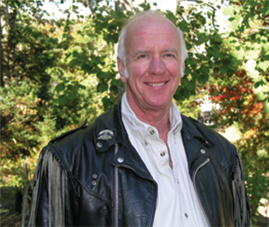Engagement With An Unexpected Question
25/07

Getting people to engage is a common concern. As a Business Coach I often have clients ask how they might arouse more engagement from their direct reports and teams.
Some common phrases they tell me that they use include the following:
| Great, I’m looking forward to the result
|
Sets expectation, can express confidence, suggests success, could generate some pressure |
| How might I help you with that?
|
Oh, well, this might suggest they will need help or that you are really enthusiastic. It is rare that the words are taken at face value. Folks make stuff up |
| What will you do, by when and how will I know its time to celebrate? |
A standard accountability string taught in Coaching schools. To the point for sure. Could be a touch cool, though it does work. I use it on myself |
| What is the first step you will take? | Can be a great option. Can feel like encouragement. However, in the moment, the person taking on the task is likely to just toss anything they can out there, so they can get away |
All of these, and many more, when delivered with sincerity, can make a positive difference. A lot depends on the delivery. Let’s look at that last one. It is not that it isn’t a helpful question, because it certainly can be. The intention is to kind of get the person started, gain a bit of engagement in their thinking. (and maybe, on the side, am I checking to assure myself that this person knows what they are doing?) It’s pretty good. However, there is a great upgrade. Notice your reaction, pretend you are taking on something new, and then are asked
“what might be among your best second steps toward achieving that?”
Just let that one sink in and notice where your mind goes. Yes it is very much like “what is the first step…”, but different in some important ways. First of all it is attention getting. If you can see the face of the person you just asked that of, expect a moment of deer in the headlights. It is odd to ask about the second step right off the bat. The mind needs to process that. It brings the person immediately to the present moment, stops all other thinking, because often they are expecting that first question and are off somewhere getting some answers ready. Once the question is accepted the mind starts to search in two places. It searches for a second step but against many possible first steps. Success with step two depends on a good choice for step one. We all like to succeed or at least look good trying. Answering this second step question without having tossed out just about any first step is a new situation. It all gets much more real. So the mind looks in two places.
Another important difference is that in the first question we have the affront embedded in the word ‘will’. That is a commitment, a challenge. One could feel pressure to pick the one perfect response, or, as suggested, to just toss some plausible and safe first step just to get you off my back. Many of us do this. The ‘will’ threatens and we defend in many ways. Now we have ‘might’ instead of will. That word acknowledges that there are many options, that we have just started to talk about this, that whatever is suggested as a second step is possibility, not yet firm. ‘Might’ is a spacious word.
I like the freedom provided in the word ‘toward’. No affront in that. Almost conversational. Almost inviting. Like shopping shelves full of options and iterating slowly closer and closer to better and better results. A relief compared to the form of the question we started with.
Finally, notice the words ‘among the best’. Again, this brings the person to searching many options trying to find a candidate that might be in the arena of best. The thinking goes back and forth with the incumbent answer for step one. See, step one has not been spoken yet, so it can be changed a hundred times with total safety. The step two options get better and better and they get better because the step one options keep getting checked and improved. There is no commitment to a spoken step one yet. Nothing to defend, options for step one remain open and welcomed without judgment from the one asking. The back and forth is natural and easy. The resulting step two is much stronger in no time, as is step one. Engagement, commitment, confidence are all increased. The words ‘among the best’ work together with the word ‘toward’ to give breathing space.
So, “what might be among your best second steps toward achieving that?”
Joseph Seiler MCC

